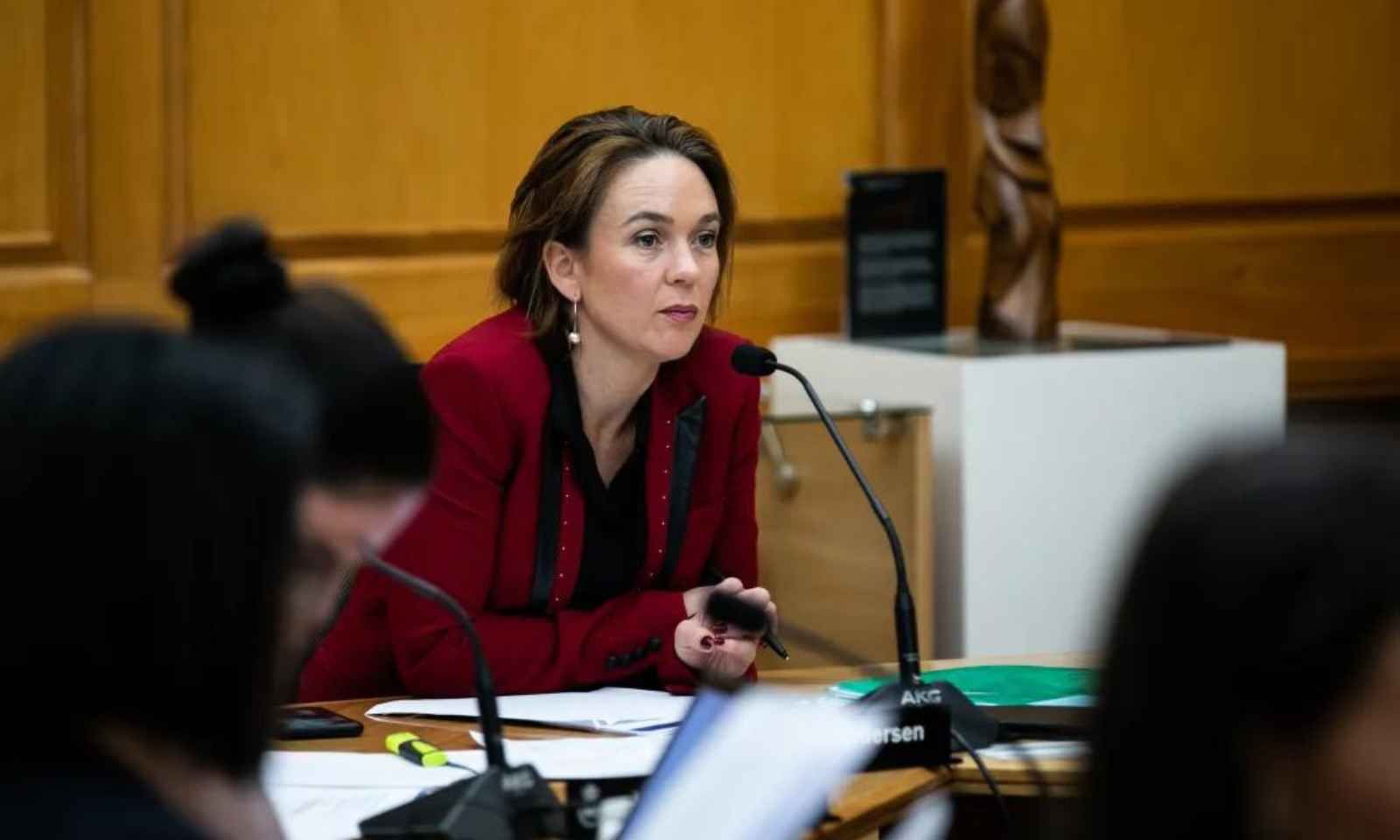

Prime Minister Christopher Luxon is getting tough on crime and gangs.
Photo/Joseph Safiti
Tougher sentences coming for criminals, PM warns
The government vows to 'harass' gangs as its 'patches ban' sparks fresh debate.



World Buskers Festival welcomes Māori and Pacific performers for historic first

From shyness to leadership: Head girl’s journey to uplifting Pacific youth



World Buskers Festival welcomes Māori and Pacific performers for historic first

From shyness to leadership: Head girl’s journey to uplifting Pacific youth
Christopher Luxon did not mince his words when he announced the government's crackdown on criminal elements across the country.
“We are going to harass them,” was the Prime Minister’s message last week as the coalition’s sentencing reforms reveal it is walking the talk with its tough stance on crime.
Watch Prime Minister Christopher Luxon's full interview below.
Justice Minister Paul Goldsmith unveiled the government’s sentencing laws which were introduced and passed in Parliament last week.
Goldsmith said the reforms would address a 33 per cent increase in violent crime and ensure 20,000 fewer victims of violent crime by 2029, including reducing youth offending by 15 per cent.
The reforms are not a surprise as they were previously announced.

Justice Minister Paul Goldsmith. Photo/National Party
But the government said it would strengthen the criminal justice system by:
Capping the sentence discounts that judges can apply at 40 per cent when "considering mitigating factors unless it would result in manifestly unjust sentencing outcomes".
Preventing repeat discounts for youth and remorse.
Responding to serious retail crime by introducing a new aggravating factor to address offences against sole charge workers, and those whose homes and business are interconnected, as committed to in the National-ACT Party coalition agreement.
Encouraging the use of cumulative sentencing for offences committed while on bail, in custody, or on parole, as committed to in the National-New Zealand First coalition agreement.
Implementing a "sliding scale for early guilty pleas with a maximum sentence discount of 25 per cent, reducing to a maximum of 5 per cent for a guilty plea entered during the trial".
Amending the principles of sentencing to include a "requirement to take into account any information provided to the court about victims' interests".
Watch the full announcement below.
The government has also added two aggravating factors to Labour’s Ram Raids Bill.
These include “adults who exploit children and young people by aiding them to offend” and “offenders who glorify their criminal activities by live streaming or posting them online”.
New powers have also been added to the policing toolkit searching gang members’ homes for patches.
Opposition leader Chris Hipkins argues the reforms are performative, labelling it as “governing by bumper sticker slogans”.
“If we want to get tough on crime, we should get tough on the causes of crime.
“If locking people up for longer was a recipe for a safer country, we'd be one of the safest countries in the world, given we've got one of the highest proportions of our population already locked up in prison.”

Opposition leader Chris Hipkins says addressing the causes will be more effective when it comes to tackling crime. Photo/Labour Party
Luxon has denied that the new sentencing reforms will lead to more Māori and Pacific people in prisons but rather it can save more victims.
“Māori and Pasifika people are actually higher victims of crime as well. What we're doing here is making sure we have a victim-centred approach, not an offender-centred approach.”
The new reforms have estimated between 1400 and 1700 more prisoners per annum over 10 years which would cost $60 million to $190 million.
But Hipkins wants a more evidence-based approach.
“Turning those people's lives around is what we should be focused on. Dealing with drug and alcohol addiction. Dealing with mental health. Dealing with the effects of poverty. Dealing with the effects of homelessness,” he said.
“If we really tackled those things, we'd actually have fewer victims.”
Watch Chris Hipkins' full interview below.
Aotearoa’s incarceration rate is 152 per 100,000 people with almost 10,000 people in prison.
Māori and Pacific people are among the top three when it comes to prison population by ethnicity.
New Zealand’s incarceration rate is considered high for a developed country when compared to nations such as France where it’s only 100 per 100,000 and the United Kingdom where it’s around 135 per 100,000.
The incarceration rate for Pacific people is estimated to be around 218 per 10,000 despite only making up 8 per cent of New Zealand’s total population.
Labour’s Police spokesperson Ginny Andersen says policies such as the sentencing reforms are hugely damaging for Māori and Pacific communities.
Watch Ginny Andersen's full interview below.
She says programmes run by the police, such as Resilience to Organise Crime in Communities, are more effective at addressing the problem through establishing networks of trust that provide an alternative lifestyle.
“Our view is that things that were working were programmes like Circuit Breaker, Kotahi Te Whakaaro, they were programmes that ran in Auckland, where around 76 per cent of young people who attended those programmes did not re-offend.”
The programme, introduced in 2022, was aimed at addressing the repeat offending of a small group of children and young people.
It would involve police identifying a child for offending behaviour which would be shared with Oranga Tamariki and within 24 hours, a plan would be made to deal with and support the young person, confirmed in 48 hours.
Andersen says programmes based on research and addressing the causes of crime are a much more effective way to go.
“The difference with stats on boot camps is around the same percentage do re-offend.

Labour's spokesperson for police, Ginny Andersen, says programmes such as Circuit Breaker has stopped 76 per cent of youth from reoffending. Photo: VNP - Daniela Maoate-Cox
"We think that doing programmes that are based on research and what works in addressing the causes of crime is a much more effective way to go," Andersen said.
“The biggest problem with programmes like taking gang patches and waging warfare outright is that you prevent that communication and those connections that give children and the next generation of rangatahi opportunities to see an alternative to a life of organised crime.
“And so sadly, this government's approach is actually doing the exact opposite of what they're saying they want to do. It's making more gang members not less.”
Both the Bill to ban gang insignia in public places and the sentencing amendments were passed in Parliament last Thursday.

